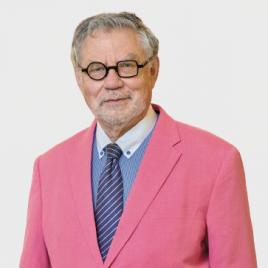This year-long seminar aims at introducing students to the principal historical, political and economic underpinnings of European Integration as well as at providing them with a deep understanding of core substantive law issues. To this end, we will revisit the founding cases of EU law in a fresh light, making use of the Total Law method, and study the phenomenon of European Integration through its five main facets: The Political, The Law, Community, The Market, and The World.
1. The Political : We will examine issues of balance of powers at the level of both inter-institutional dynamics and relationships between the EU and national political systems through concrete issues of allocation of powers, decision-making processes, including agenda-setting and quasi-legislation, and through theoretical questions of governance, federalism and democracy.
2. The Law: This cluster aspires to provide more than the usual overview of the EU legal order. We will examine the twin pillars of the EU legal order: sovereignty and constitutionalism, and how they have contributed to shaping our understanding of EU’s authority and its relationships to both international and national legal systems. We will look at how this has led to some of the central doctrines of EU law such as direct effect, supremacy and subsidiarity, and the specific role and architecture of the Union’s judiciary in this context. We will also review how the authority of EU law is complemented by its submission to the rule of law. In this context, one issue of particular importance will be the protection of fundamental rights. The later are also a particular good example of how a limit to EU powers can, increasingly, become a new EU power.
3. Community: The idea of Community lies at the heart of the European project. This has been made particularly explicit with the establishment both of EU citizenship and the area of freedom, security and justice. EU law therefore provides for citizenship rights for EU nationals as well as governing equal opportunities, immigration and asylum, and criminal justice. It is based on certain conceptions of, and begs questions about identity and boundaries.
4. The Market : In the beginning of European integration was the Market. It is not only the founding but also the most fully-fledged policy field developed at the European level. We will thus focus on a contextual and functional analysis of the free movement rules and their impact on the regulatory and tax policies of the Member States. We will therefore also consider the main forms of regime for governing the single market: mutual accommodation; Union legislation; standardization and pan-Union agencies, and address the tensions between different ideologies and market and non-market considerations such as social justice, environment or public health.
5. The World: This cluster envisages the European Union as a World player. We will look at asymmetries in competencies between different policy fields such as commercial policy and defense policy; the related Union’s competence and its power of external representation; their intertwinement with those of the Member States; the Union’s foreign policy democratic credentials; the systems of committees, representative processes and institutional relations that allow the Union to build up positions in international organisations and negotiations both in its own right and alongside those of the Member States. We will analyze in more particular detail some of the central international fora where the Union is prominent such as the WTO, the G20 and the Climate Change negotiations.
Be prepared for a very intensive but rewarding seminar!









